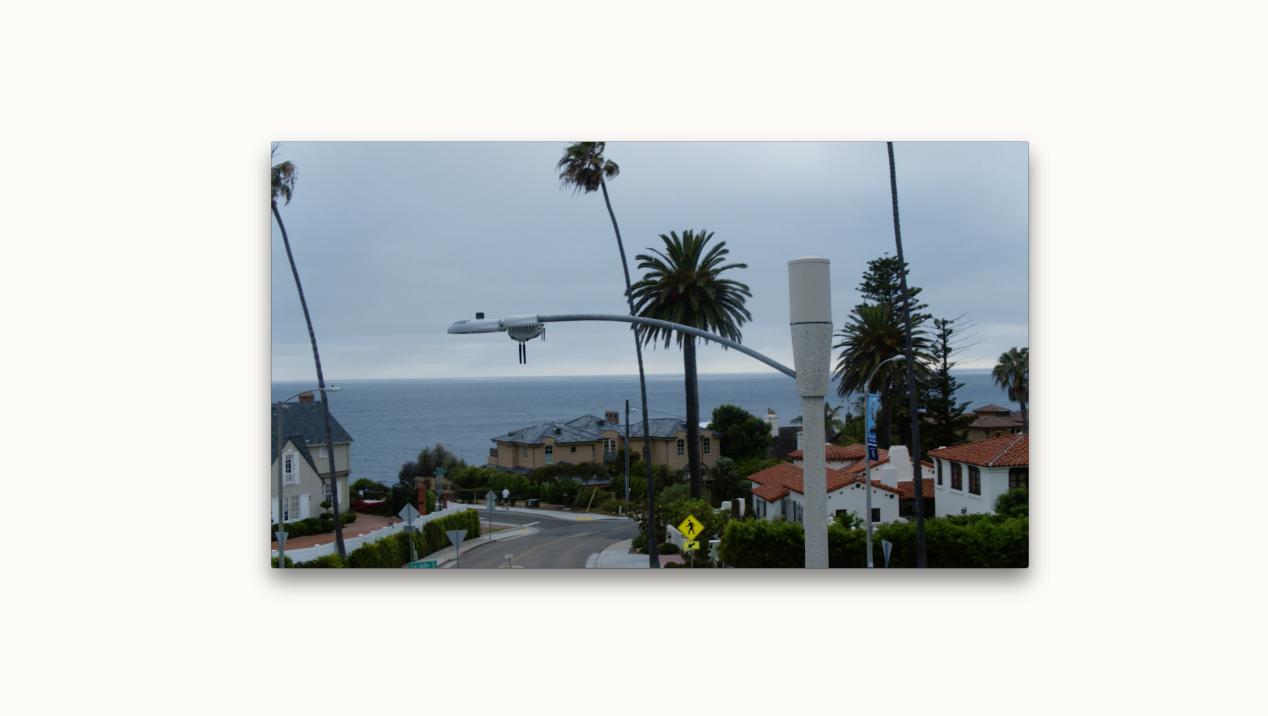Smart Wayfinders and Self Surveillance

San Diego's leaders are set on Monday, July 17, 2023 to approve a contract with the company Ike Smart Cities to install and operate huge "wayfinder" tablets in public. These giant touchscreens are said to help pedestrians find places and businesses nearby and provide information about city services.
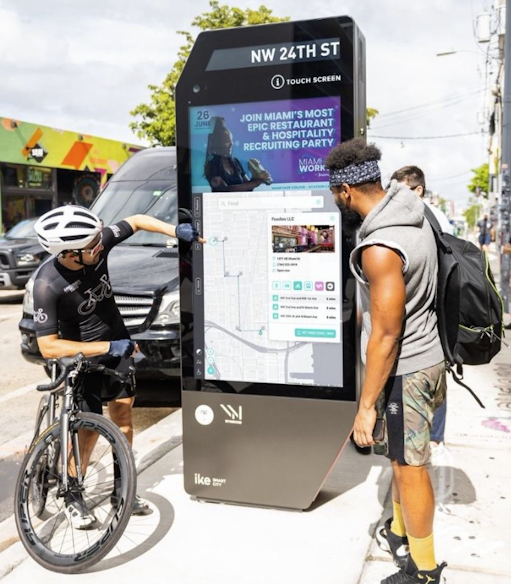
For now, the wayfinders proposed for San Diego don't use traditional surveillance devices, such as cameras, to collect data. They did originally have such devices operating, and they could still yet, but through a series of meetings over the years, Ike has promised they won't be present on devices in San Diego.
These wayfinders will show advertisements up to 49% of the time, and those ads generate nice profits for Ike and their local partner (in this case, Downtown San Diego Partnership). Many readers will already know that advertisers pay a premium to place their ads in targeted locations where they know their ads will be relevant.
How do they know where it's best to place ads? As our readers already know, our privacy is the product being sold. The modern "smart" business model is surveillance all the way down. But how does that work with "smart" wayfinders, if the wayfinders themselves aren't using some trick to collect our personal information?
The answer may surprise you! The wayfinder doesn't need to trick our personal information out of us. Many of us are giving it to them, we just don't know it.
Placer.ai
During a preliminary conversation with Ike Smart Cities in 2020, they explained that they use a service called Placer.ai to ensure advertisers can target demographic groups that are interesting to those advertisers. This is why they don't need to collect data themselves: someone else is already collecting it.
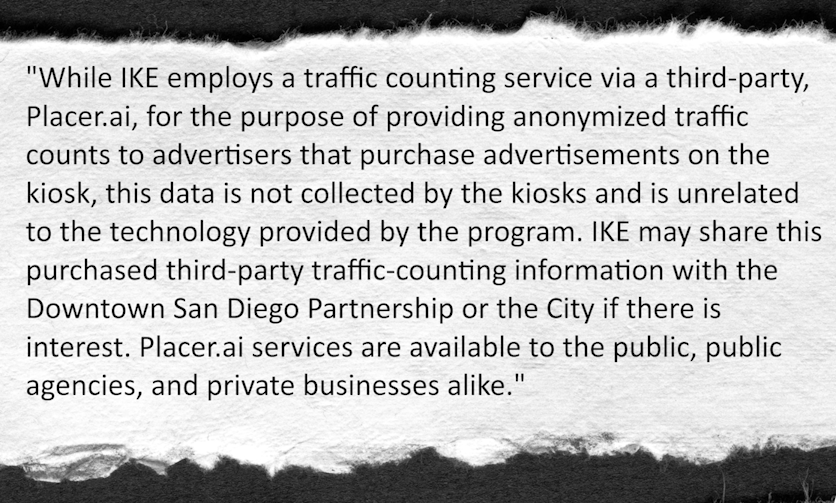
But If Ike gets the location data that supports its advertising efforts from Placer.ai, where does Placer's data originate from?
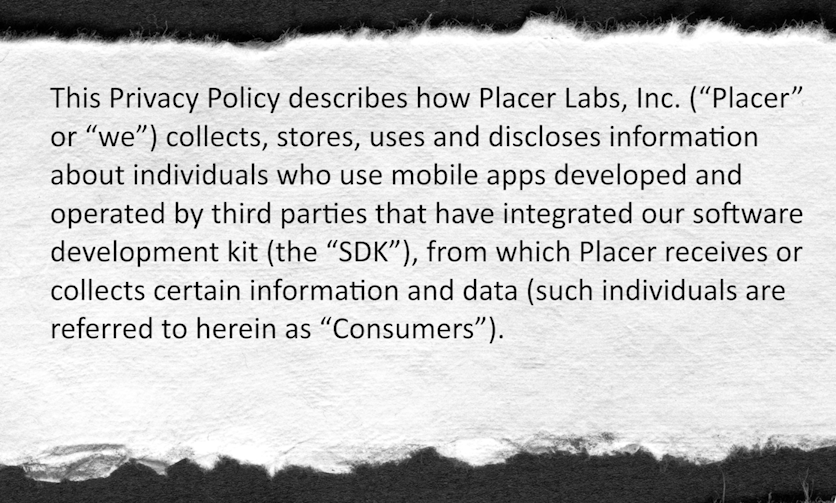
Placer gets our personal information by placing its data tracking technology deep within mobile apps that people love to use. App developers put Placer's technology in their app to make money.
We don't know which apps have made this deal with Placer, but last year it was revealed another company similar to Placer had put its tracking technology in dating apps, Muslim prayer apps, weather apps and stock investment training apps. In other words, these trackers could be in any app.
How many apps does Placer have, and how many of us are working for Placer without knowing it?
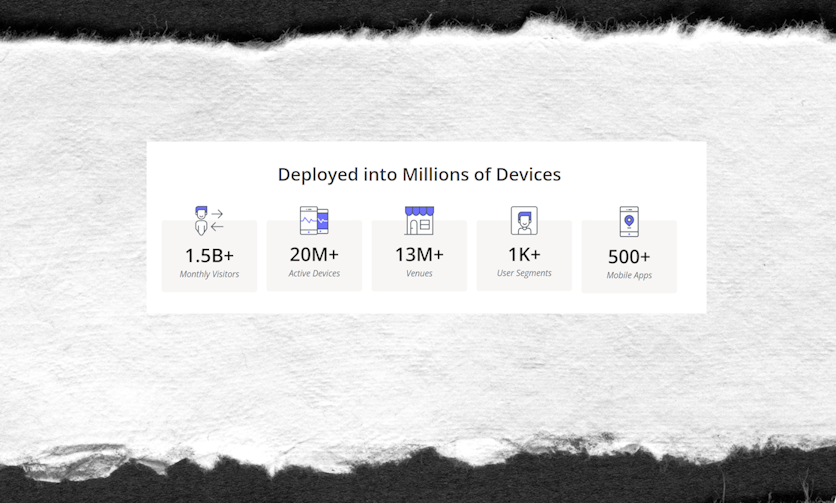
In 2022, Placer was bragging that they were taking data from more than 20 million active devices, which was being sent to them from more than 500 mobile apps. Then, Vice ran a story about how Placer provides data about where abortion seekers live. Now, these counts no longer appear on Placer's site. We have no idea which apps are partnered with Placer, or who among us are being tracked without knowing.
Regulating Self Surveillance
San Diego now has a surveillance technology oversight ordinance in place that is supposed to make he use of surveillance technology more transparent to San Diegans and our leaders, by ensuring the technology gets analyzed by the multi-disciplinary experts of San Diego's Privacy Advisory Board.
When I asked my City Councilmember Raul Campillo why he didn't insist this technology be reviewed by the privacy board's experts, he said it was because there was no surveillance technology involved. And Mr. Campillo isn't alone in that opinion. His opinion is backed up by the city's Director of Information Technology, and by the city's Chief Information Security Officer.
They may be right, from a certain perspective. Surveilling ourselves and then allowing a company hidden deep in our smart phones to suck that data up and sell it all over the world, for virtually any purpose imaginable, may not be something that is easy for us to regulate in San Diego. We may need to ask our state leaders to pay attention to this issue.
After all, Massachusetts is currently considering an outright ban on the sale of location data taken from phones.


